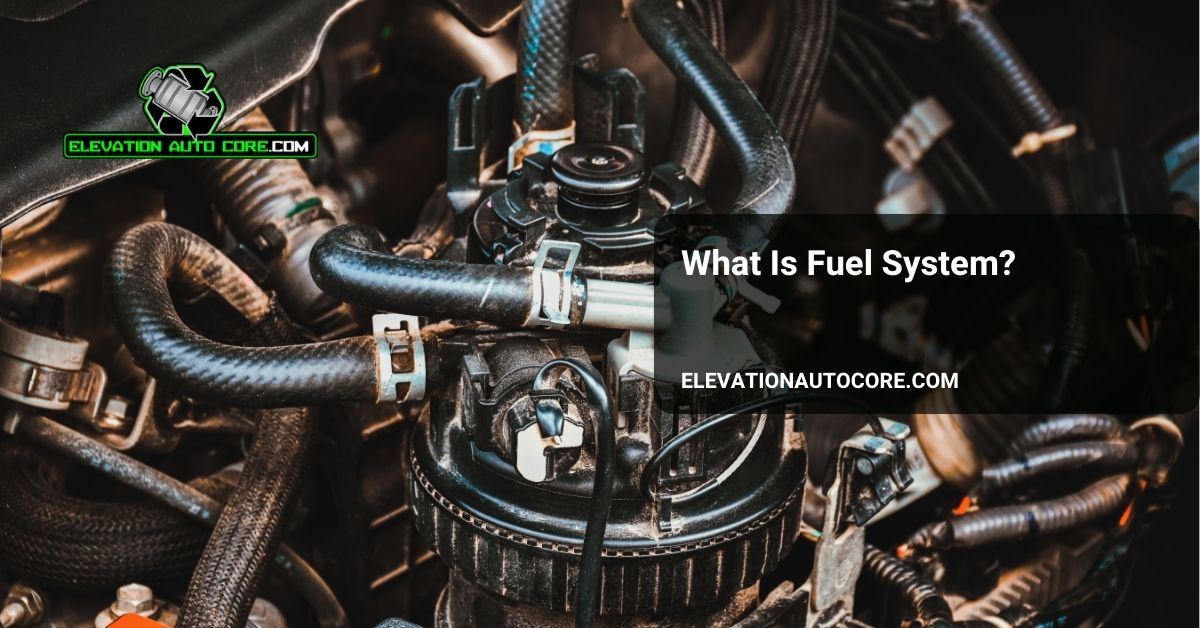What is a fuel system, and why is it essential for your vehicle’s performance? From powering your engine to ensuring smooth operation, the fuel system plays a critical role in delivering the right amount of fuel at the right time. Understanding how it works can help you maintain your car’s efficiency and avoid costly repairs. Keep reading to uncover the key components and functions of this vital system.
What Is Fuel System
The fuel system manages the storage and delivery of fuel to the engine. It’s designed to ensure that your engine receives the precise mixture of air and fuel required for combustion. Every component contributes to vehicle efficiency and performance.
You’ll find various parts working together, such as the fuel tank, pump, injectors, and fuel lines. The fuel pump moves fuel from the tank to the engine, while the injectors spray it into the combustion chamber as a fine mist. These components operate collectively to optimize performance.
Modern fuel systems rely on sensors and control units to adjust fuel delivery accurately. These adjustments respond to driving conditions, ensuring optimal engine output and fuel efficiency. If malfunctioning, misfires, reduced power, or increased emissions can occur.
Fuel systems vary depending on combustion method and engine design. Gasoline and diesel systems include similar components but function differently for combustion. Understanding these variations helps diagnose and prevent system-related issues.
Components Of A Fuel System
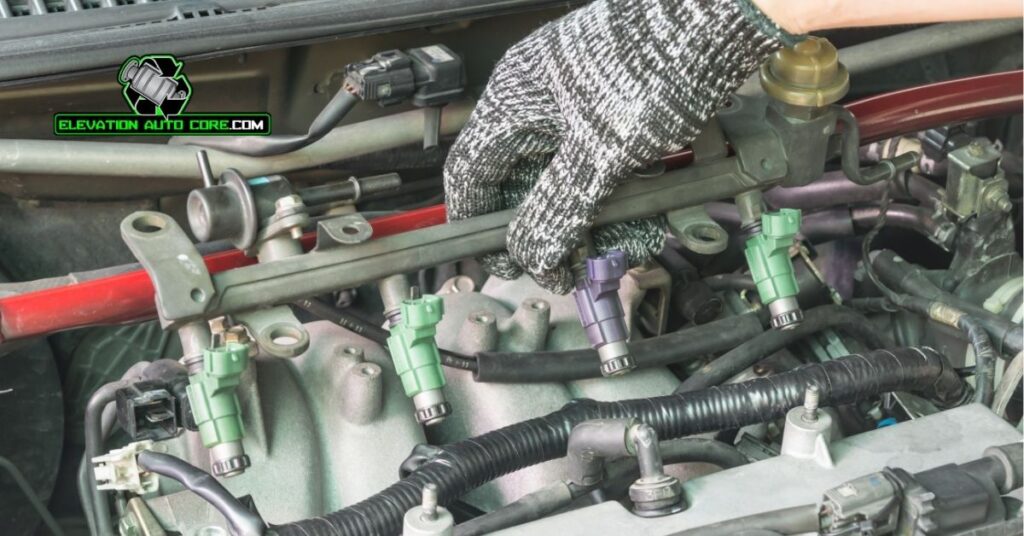
Each part of the fuel system contributes to storing, filtering, and delivering fuel efficiently. Understanding these components enhances your ability to maintain vehicle performance and troubleshoot issues effectively.
Fuel Tank
The fuel tank stores gasoline or diesel safely before use. It is designed to withstand pressure changes and prevent leaks. Vehicle manufacturers often design tanks with materials like steel or high-density plastic for durability.
Fuel Pump
Fuel is transported from the tank to the engine by the fuel pump. In most modern vehicles, the pump is mounted inside the tank. Electric fuel pumps ensure consistent pressure, which is crucial for optimal engine performance.
Fuel Injectors
Fuel injectors spray a fine mist of fuel into the combustion chamber. They ensure precise delivery for a balanced air-to-fuel ratio, critical for proper combustion. Advanced injectors use electronic control systems to adapt to driving conditions.
Fuel Filter
Fuel filters remove impurities like dirt and rust from the fuel. This protects engine components and improves performance. Regular replacement of filters minimizes the risk of clogs and extends the life of the fuel system.
How Does A Fuel System Work
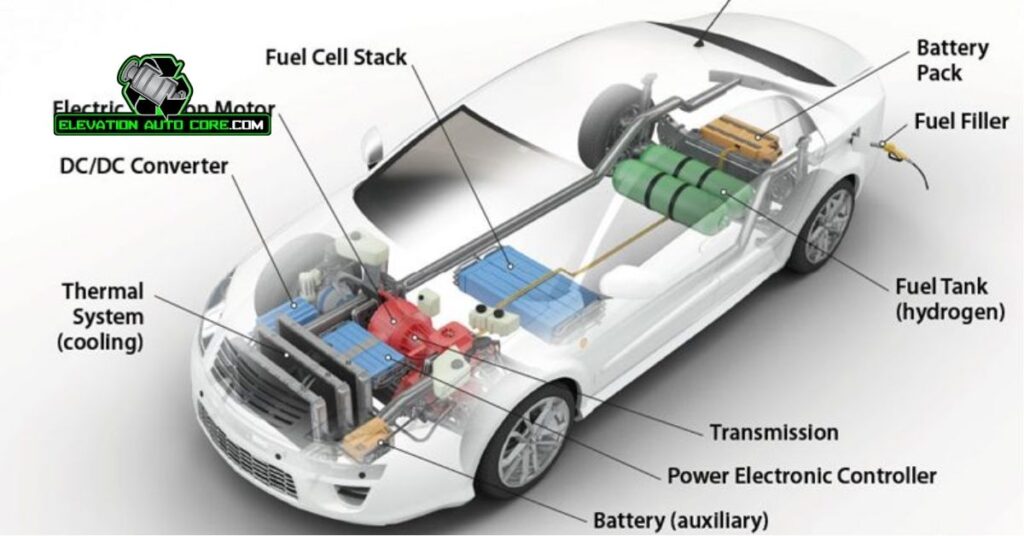
A fuel system ensures your engine receives the right quantity of fuel for combustion. Its operation involves various components working in harmony to maximize performance and efficiency.
Fuel Delivery Process
Fuel is drawn from the tank and transported to the engine. The fuel pump creates the necessary pressure to move gasoline or diesel through the fuel lines. Along its path, the fuel passes through a filter to remove contaminants and protect the engine’s internal components. Once it reaches the engine, fuel injectors spray it in a fine mist for optimal combustion. Sensors continuously monitor conditions, enabling the control unit to adjust delivery based on demands like speed or load.
Role Of Air-Fuel Mixture
Combustion efficiency depends on maintaining a balanced air and fuel ratio. Fuel injectors, with assistance from sensors, mix fuel with air in precise proportions before ignition. An optimal mixture provides maximum power output and minimizes emissions. Rich mixtures contain more fuel than air, while lean mixtures have more air; both can affect performance if improperly balanced. Advanced systems ensure real-time adjustments to keep this ratio ideal under varying driving conditions.
Types Of Fuel Systems
Various fuel systems are designed to cater to different engine types and applications. These systems determine how fuel is delivered to the engine for combustion.
Carbureted Fuel System
A carbureted fuel system mixes air and fuel in a carburetor before delivering it to the engine. It relies on vacuum pressure to draw in the required amount of fuel. Carburetors were common in vehicles before the 1990s. Although simpler in design, they lack the precision of modern systems. This system adjusts fuel delivery mechanically, which offers less control compared to electronic systems. Older motorcycles and classic cars often feature carbureted systems.
Electronic Fuel Injection (EFI)
Electronic fuel injection uses electronic control units to manage fuel delivery. It ensures improved performance by monitoring engine conditions through sensors. Fuel injectors spray fuel directly into the intake manifold, creating a precise air-fuel mixture. This system became the standard in most passenger cars after carburetors were phased out. Its advantages include better fuel efficiency, lower emissions, and adaptability to various driving conditions. Sensor-based inputs allow the system to adjust fuel delivery more accurately.
Direct Fuel Injection
Direct fuel injection sprays fuel directly into the combustion chamber, bypassing the intake manifold. This system increases combustion efficiency by creating a finer mixture. It’s commonly found in modern gasoline and diesel engines. Greater engine power and reduced fuel consumption make it a preferred choice for newer vehicles. High-pressure injectors and advanced control units work together to deliver fuel precisely under various conditions. This system is more sophisticated but requires regular maintenance to avoid carbon buildup.
Importance Of A Properly Functioning Fuel System
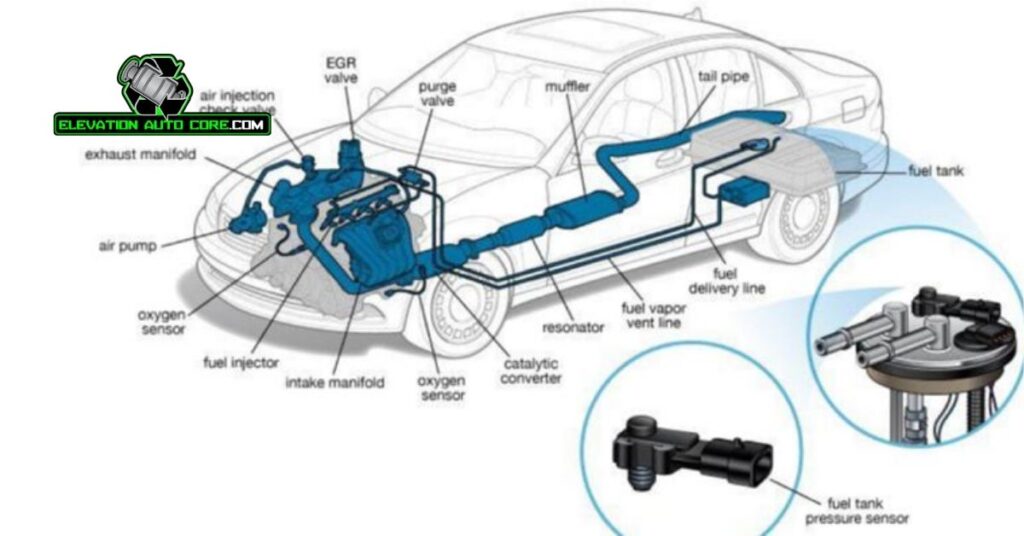
A functional fuel system directly impacts your vehicle’s performance and efficiency. Its role in maintaining optimal engine output and reducing fuel waste makes it an essential component of any vehicle.
Impact On Engine Performance
Efficient fuel delivery supports consistent engine power. The system ensures the correct amount of fuel reaches the combustion chamber, enabling smooth operation under various conditions. When operating properly, it helps prevent issues like misfires, loss of power, or hard starts. Fuel injectors and control units work together to balance the air-fuel mixture, which avoids incomplete combustion. Faulty components, such as clogged injectors or a failing fuel pump, disrupt this process, leading to rough idling or stalling.
Proper engine performance also relies on clean fuel flow. Contaminants removed by the fuel filter protect sensitive parts within the engine. Without regular maintenance, debris buildup can obstruct components and reduce engine life, increasing the risk of critical failures.
Fuel Efficiency Considerations
A healthy fuel system delivers optimal fuel efficiency. Sensors within the system monitor variables like speed and load to adjust fuel delivery in real-time. This continuous adjustment maintains the ideal air-fuel ratio, maximizing miles per gallon. Vehicles with malfunctioning systems often experience decreased efficiency due to excessive fuel delivery or restricted flow.
Reducing fuel waste relies on timely servicing of the system. Fuel pump pressure consistency, clean filters, and precise injector function ensure fuel is not unnecessarily consumed. Poor performance in any part of the system increases fuel usage, raising operating costs.
Common Fuel System Issues And Solutions
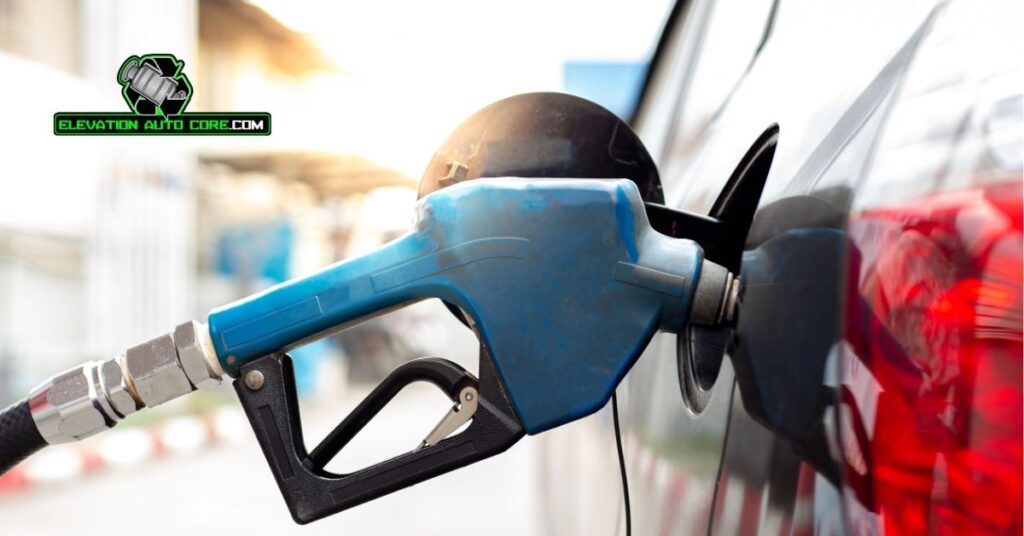
Maintaining your fuel system is essential for ensuring your vehicle runs smoothly. Addressing common issues can prevent performance problems and costly repairs over time.
Clogged Fuel Filter
Fuel filters trap impurities like dirt and rust to keep fuel clean. Over time, these filters can accumulate debris, restricting fuel flow. Reduced fuel delivery often leads to engine misfires, poor acceleration, or stalling. Regular replacement of the fuel filter is recommended to avoid clogs. Check your vehicle’s service manual for the suggested interval, typically every 20,000 to 40,000 miles. If the engine struggles to maintain power, inspect this component promptly.
Faulty Fuel Pump
A malfunctioning fuel pump disrupts fuel delivery to the engine, causing power loss or difficulty starting your car. Signs like whining noises near the fuel tank or a decrease in fuel efficiency often indicate pump damage. Heat, contaminated fuel, or consistently running the tank low can accelerate pump failure. Ensure you keep the fuel tank at least a quarter full and replace the pump if signs of wear appear. Conduct professional diagnostic testing to confirm issues before replacement, as other components can mimic similar symptoms.
Conclusion
Understanding your vehicle’s fuel system is essential for maintaining its performance and efficiency. By familiarizing yourself with its components and functions, you can better identify potential issues and take proactive steps to prevent costly repairs. Regular maintenance, such as replacing filters and monitoring fuel pump health, ensures your fuel system operates smoothly and supports optimal engine performance.
A well-maintained fuel system not only enhances your driving experience but also extends the life of your vehicle. Prioritize care and attention to this critical system, and you’ll enjoy improved reliability, fuel efficiency, and overall peace of mind on the road.

